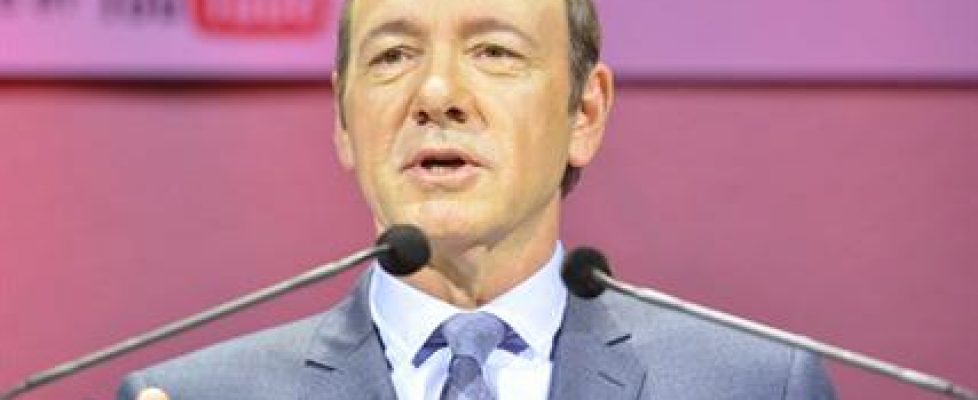Kevin Spacey got me thinking….
In August of this year Kevin Spacey delivered The James MacTaggart Memorial Lecture at the Edinburgh International Television Festival. It struck a chord with me. A big one. Not because I am an actor, or a script writer or a even a network executive. What I am is a lover of television. Not television that disrespects the intelligence of the viewer and is aimed at the lowest common denominator. That television holds little appeal to me. What I am drawn to is quality television that entertains and strives to challenge the viewer at the same time.
In saying that I often feel alone in this love. I receive strange looks when I describe Joss Whedon as a ‘god’ or worse still, I am asked “Joss Whedon? Who’s that?” My rants about Game of Thrones are often met with, “oh, that’s a fantasy isn’t it?” It’s like anything considered fantasy is only for ‘geeks’ where in reality some of the most incredible character development is from the sci-fi/fantasy genre. (Battlestar Galactica, anyone?) Instead of becoming totally disillusioned though, it makes me more determined to explain myself better. Because for me, it’s all about the characters and the story – and who doesn’t love stories? Give me complex, imperfect characters who evolve over time and I am hooked. Give me consistent storylines which carry on, not only episode to episode but season to season. I will become wholeheartedly invested in the show, from the actors to the creators. I agree with Kevin Spacey that “culture unites us” and that is what I try to share with those around me.
There are so many interesting elements to Kevin Spacey’s speech. The one which I believe will be looked back on in years to come is his thoughts on how technology has changed the way we view media. He makes a very valid observation that the walls between film, television, mini-series and web episodes (to name a few) are collapsing. The way audiences consume media is changing and old assumptions of what they want no longer apply. Television is no longer a slave to the scheduled broadcast and the static, domestic audience. It is now in the hands of the viewer to choose how they view television, where and on what device. In the end, much of the decision making still lies with the networks but in this new world order, the stakes for the networks have never been so high. Being afraid of risk equals failure. Ignore the audience and they will leave.
Before we look at the official networks let’s look at the internet TV service provider Netflix. Netflix took a calculated risk in picking up House of Cards and then airing it in one hit in February of this year. It paid off. The audience embraced both the series and the format. They were able to joyfully binge on a compelling story full of fascinating characters. Only 5 months later Netflix aired Orange is the New Black the same way. Another huge success and social media went crazy for it.
AMC made the decision to split the last season of Breaking Bad over 2 years and were rewarded by receiving the highest ratings for the series ever. This week they have announced that they are doing the same thing with Mad Men. The only thing AMC needs to keep in mind, as Kevin Spacey warns, is that what works one year might not work the next.
And then we have HBO. I have the utmost respect for this network, who have been taking risks for many years now. It was HBO back in 1999 who took a huge risk on The Sopranos. It was HBO who has given the brilliant and creative Lena Dunham the opportunity and freedom to write, star and direct her own show Girls. And it was HBO who had the vision and fortitude to take on the epic giant, Game of Thrones. I see the HBO logo as a badge of quality and I hope that never changes.
Some series are slow to find audiences and I live in permanent hope that all networks gain a little patience and look at more than just ratings when judging how successful a series can be. The Sopranos and Breaking Bad were slow success stories and thank goodness HBO and AMC stuck by them. Sadly this is not always the case and my heart has been broken more than once over shows that showed great potential but were axed before they could really take flight: shows like Firefly, Wonderfalls, Freaks and Geeks, and more recently Smash, and Boss. Quality television and the creative talent that creates it is a precious thing and I agree with Kevin Spacey that it needs to be protected, nurtured and given the best possible opportunity to succeed. In this third golden age of television that we are living in, audiences, through the ever-emerging technology available, are able to be more invested in their television loves than ever before. And that’s all we’ve ever wanted.
If you have a passion for television and find yourself with a spare 46.53 minutes I strongly recommend watching Kevin Spacey’s James MacTaggart memorial Lecture. Do you believe the future of television which he describes is accurate?

